Politics
Extra funding to tackle homelessness
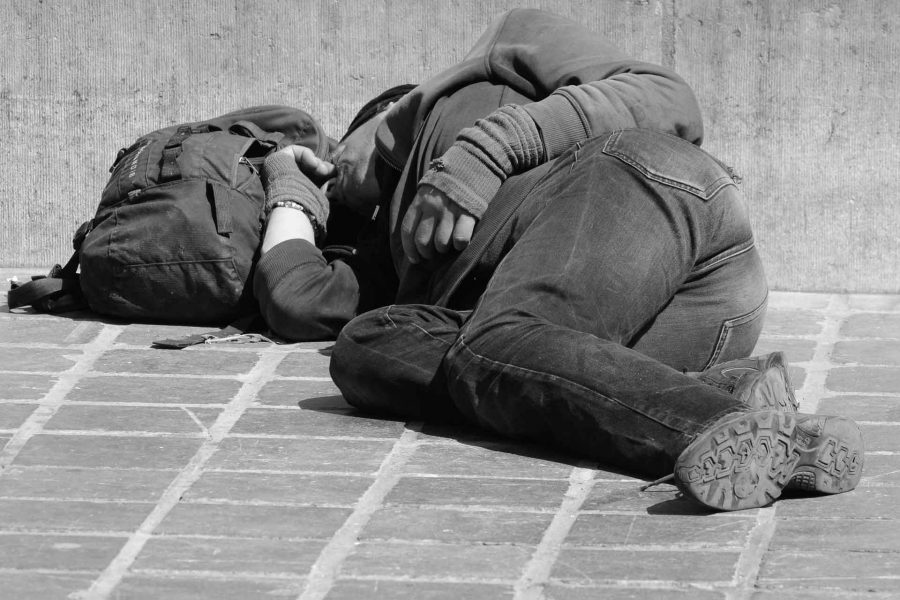
WALES’ Minister for Housing and Local Government, Julie James has confirmed up to £50m to support projects across Wales.
The funding aims to provide people with safe and secure homes to ensure they do not fall into homelessness.
The Welsh Government has reiterated their commitment to tackling homelessness, rehousing everyone who has been provided with emergency shelter during the coronavirus pandemic, and building on the initial £10m in funding announced in March by making additional £40m available for local authorities.
The initial phase of the homelessness response focused on ensuring everyone had accommodation where they could self-isolate if necessary and could follow public health advice on basic hygiene, hand washing and social distancing.
Phase 2 focuses on a longer term approach to transform services, innovate and build accommodation, with the ambition of ensuring everyone who was provided with emergency accommodation during the coronavirus pandemic has a clear route to permanent housing and providing high quality accommodation for those who are threatened with homelessness in the future.
The Welsh Government has also provided a package of support to make sure as many people as possible facing financial hardship as a result of the coronavirus pandemic remain in their private rented homes, sustaining tenancies and avoiding eviction due to rent arrears.
Last week a temporary increase in the notice period for eviction was announced, providing greater protection from homelessness for tenants in private rented and housing association accommodation.
In July, an extra £1.4m was announced to help tenants boost their household income and manage problem debt, through the Single Advice Fund. In addition, the new Tenant Saver Loan Scheme will provide an affordable way to cover rent arrears, or future months’ rent, reducing the risk of eviction and homelessness.
The loans will be paid directly to landlords and are available for tenants who were not in significant rent arrears prior to March 1 this year.
Julie James said: “The coronavirus has shone a light on housing in a way that few of us have seen before and reminded us all of the fundamental importance of good-quality affordable housing, a safe and secure home and strong and cohesive communities where people want to live and work. The best way we can tackle homelessness is by preventing it in the first place.
“I have been clear that I do not wish to see anyone forced to return to the streets. We have a unique opportunity to change the services and change lives for the better – and make homelessness rare, brief and unrepeated. We want to build on the success we have seen so far and change Wales’ approach to homelessness in the long term.
“To that end I have increased the overall homelessness phase 2 funding to up to £50m, which clearly demonstrates the level of commitment we have to ensuring we can make a truly significant and transformational step-change towards achieving our goal of ending homelessness in Wales.
“Local Authorities, working in partnership with third sector and other organisations have come forward with some highly ambitious, bold and innovative projects that not only draw on energy efficient, modern methods of construction but also join-up with other services, such as substance misuse, mental health, primary care and community safety. This reflects the fact that homelessness isn’t just a housing issue; it’s a public services issue and it’s about having access to those services where and when people need them.
“We’re not tinkering around the edges – this is about bold, long-lasting solutions.”
Plaid Cymru Shadow Housing minister Delyth Jewell MS said: “This announcement from the housing minister is a long overdue commitment to tackling both homelessness and the housing crisis. I look forward to working with the Welsh Government and local authorities to ensure money is targeted where it is needed.
“But there is always more to do. To truly address these long terms problems we need a housing first model, more affordable homes being built and ending no fault evictions for good.
“The Coronavirus has exposed the grim truth that homelessness is and remains a political choice that should have been tackled long ago. Access to housing should be a human right and Plaid Cymru will work to see this enshrined in Welsh law.”
Business
Pembroke Dock restaurant to close on Christmas Day after £23,000 rates rise
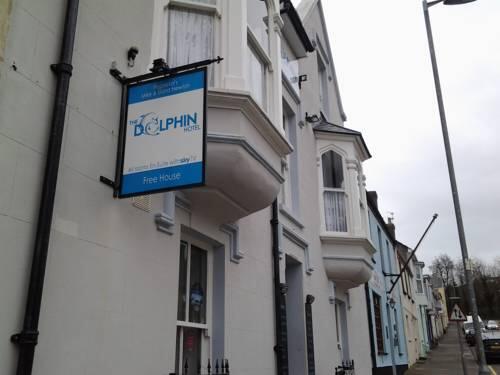
A PEMBROKE DOCK restaurant owner has said she is “devastated” after being forced to close her business on Christmas Day following a projected business rates increase of more than £23,000.
Randalls Restaurant, which operates from The Dolphin Hotel in Pembroke Dock, has been run by Natalie Newton and her family since 1999. Ms Newton took over the business in 2018 after her parents retired, overseeing a major transformation from a traditional pub and bed and breakfast into a hotel and restaurant.
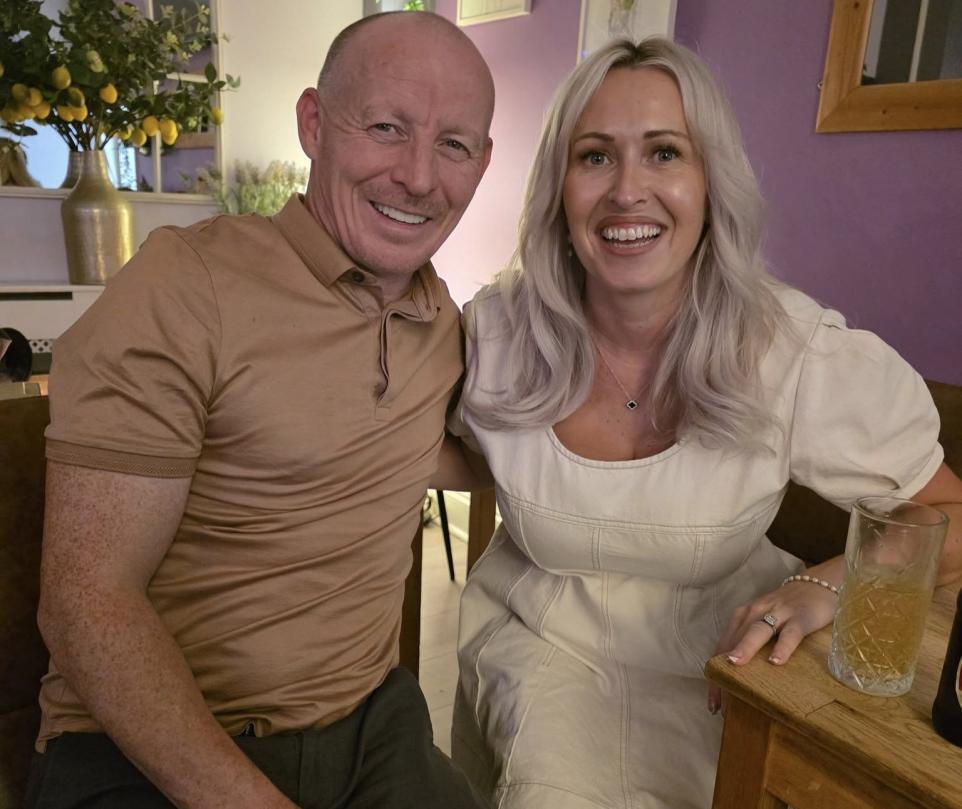
For the past seven years, she and her fiancée, chef Ben Randall, have worked to build the restaurant’s reputation, offering breakfasts, lunches and evening meals using locally sourced produce where possible, as well as hosting special events including Christmas parties, buffets, afternoon teas and themed dining nights.
However, Ms Newton said she was left with no option but to close the restaurant after discovering that its business rates are expected to rise from around £10,000 to £33,000 from next year.
She said: “It’s a great shame. My father is absolutely devastated – this was his legacy. I took it over and built a really successful restaurant, and now it feels like it’s been taken away.”
Ms Newton said she checked her projected rates bill using the Government’s online calculator and was shocked to see that it had more than trebled. With quieter trading months expected early in the year, she said the increase was simply not sustainable.
“January, February and March are quieter months,” she said. “From April I’d need to find an extra £2,750 every month. Even if I managed it, I’d be working for nothing, and I’m worried I wouldn’t be able to pay my bills and would end up in the red.”
She added: “I’ve made the decision to close straight after Christmas Day. It’s drastic, but I have to keep my head above water and protect everything my parents worked for.”
Ms Newton said the decision had not only affected her family but also the restaurant’s eleven members of staff.
“I’ve invested everything back into this business,” she said. “Every penny the restaurant has made has gone straight back into it. I’ve worked every day, nights and weekends, and I haven’t had Christmas at home for seven years.
“For the last six months I’d look around the restaurant when it was busy and think how lucky we were. People were happy, good food was going out. Now it feels like it’s all been snatched away.”
The Herald has reported extensively on growing concern among Pembrokeshire businesses over sharp increases in business rates following updated valuations, with several town centre traders warning that rising fixed costs are pushing otherwise viable businesses to the brink.
Ms Newton said she intends to focus on running the hotel after Christmas but will miss the restaurant and its customers.
“I’m going to miss everyone,” she said. “I’ve loved building relationships with customers over the years. I just want to thank everyone who believed in Ben and me and supported us.”
Business rates in Wales are due to be updated from April 1, 2026, to reflect current property values. The Welsh Government has said that while many businesses will see their bills fall, others will face increases.
It has announced that any business facing an increase of more than £300 will have the rise phased in over two years rather than being applied in full immediately.
Cabinet Secretary for Finance and Welsh Language Mark Drakeford said previously: “We know businesses have faced significant economic challenges in recent years. This support package will help them manage the transition to updated rates bills while we deliver on our commitment to a fairer rates system.”
Community
Cilgerran school could be discontinued as consultation launched

A CONSULTATION on proposed changes for a north Pembrokeshire school, which attracted a near-400-strong petition in opposition to the council, has been launched.
At its May meeting, Pembrokeshire County Council considered a report of the School Modernisation Working Group which outlined the findings of a review of education provision in the Preseli area.
“In particular, the review considered the extent of surplus school places in the area, set against a significant decline in the pupil population,” the council in its consultation on proposals for discontinuation of Cilgerran Church in Wales Voluntary Controlled School has said.
A later July meeting of the council, following May’s agreed consultation with St David’s Diocese, backed a general consultation to discontinue Cilgerran Church in Wales Voluntary Controlled School, and to establish it as a 3-11 community school.
The consultation was launched on December 16 and runs to January 30.
Hundreds have opposed the proposed changes, with a petition, on the council’s own website opposing the changes recently closed after gaining 391 signatures.
Any petition of between 100 and 499 signatures triggers a debate at one of the council’s Overview and Scrutiny Committees, and any over 500 a debate at full council, meaning this petition will be heard by committee members at a later date.
The proposals for Cilgerran are part of a wide range of potential education changes in the county.
Two petitions, opposing the potential closures of Manorbier and Ysgol Clydau schools, were recently heard at full council and a further petition opposing the potential closure of Stepaside School has recently been launched.
The Cilgerran e-petition, created by Louise Williams, raised concerns including the school could become part of a federation, a loss of permanent head teacher on site, a shared head teacher would have to oversee several schools, loss of funding control and the ability to maintain the school’s current healthy and stable funding, and a loss of commitment to the church, in turn could impact on the school’s and pupils values, beliefs and cultural beliefs.
It said: “Ysgol Cilgerran VC school has strong links with the Church community in Cilgerran and we believe this will have a negative impact on the children who attend the school, the community of Cilgerran and the links between the two.
“We are proud of our school ethos and values which are strengthened by our links with the church. The school has close and strong relationships with our Church in Wales federation governors one of which is also our safeguarding governor.
“Our Church Federation governors work closely with the school and are regular visitors to the school and the children. They provide vital support and guidance to the school and have a positive impact on the Children’s education. We believe these links will be weakened by this proposal to remove our VC status and we believe this is an un-necessary action.”
Community
‘Harrowing’ distress now the norm for unpaid carers in Wales

“HARROWING” levels of distress have become the norm for unpaid carers in Wales, a committee has heard, with charities warning of a support system “set up to fail”.
Kate Cubbage, director of Carers Trust Wales, told the Senedd’s health scrutiny committee: “There are too many carers who are reaching crisis point without any support.”
Ms Cubbage explained that most councils are supporting fewer than 500 carers, warning: “There are really, really high levels of unmet need within our communities.”
She told Senedd Members that staff are receiving trauma training to support their mental health due to the levels of distress they are seeing among carers.
Ms Cubbage pointed to a University of Birmingham study which found an increased suicide risk among unpaid carers akin to that of veterans who have seen active service.
“One in eight carers has made a plan to end their own life,” she said, calling for carers to be specifically considered in the Welsh Government’s suicide prevention strategy.
“One in ten has made an attempt… at a time when the average local authority has support plans for less than 0.5% of the caring population.”
Warning of deepening poverty in Wales, the witness expressed concerns about a 31% poverty rate among carers – “far higher” than the 22% in the wider population.
Ms Cubbage added that young carers miss more than six full school weeks each year, compared with pupils without caring responsibilities who miss nearer two weeks.
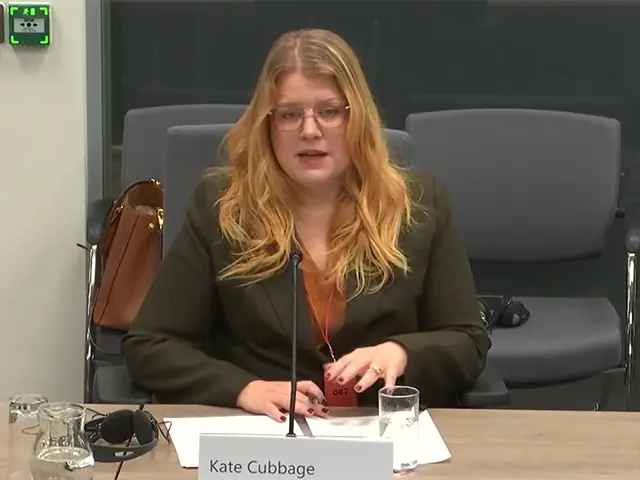
She told the health committee: “It’s no wonder young carers are achieving less at school. They are less likely to go on into further and higher education.
“And if they do make it to university, they’re less likely than their peers to actually graduate.”
Reflecting on a personal note, Ms Cubbage, a parent carer, said her autistic son has accessed services from ophthalmology to audiology over the past 16 years.
“I have never once been signposted to anything that would suggest that I am an unpaid carer or that I can access support… That kind of lived experience is really important.”
Rob Simkins, head of policy at Carers Wales, added: “Things are getting worse: anecdotally, we see that through our services but also that’s what the research tells us.”
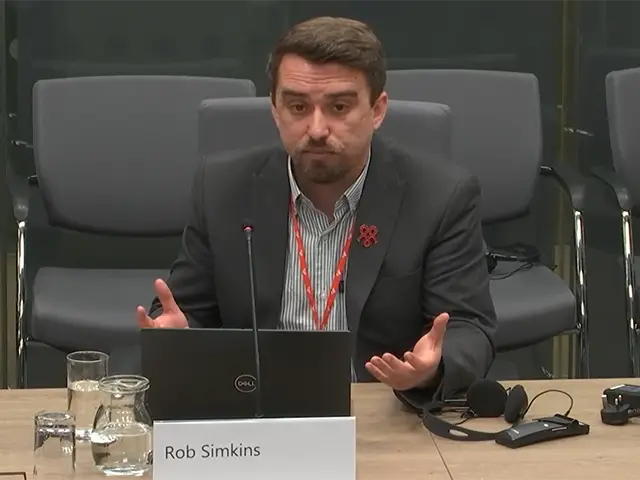
He pointed to a Carers Wales survey which has shown a “shocking” 53% increase in the number of carers cutting back on food and heating.
Giving evidence on Wednesday December 17, Mr Simkins warned of a 39% increase in the number of carers reporting “bad” or “very bad” mental health since 2023.
“All the evidence that we’re collecting shows that this is going in one direction,” he told the committee, adding: “And that’s the wrong direction. It’s a bleak context.”
Mr Simkins said census data shows about 310,000 unpaid carers in Wales but research indicates the number could be nearer 500,000 – roughly 15% of the population.
He cautioned that charities across the country, including Carers Wales, are seeing real-terms cuts in funding from the Welsh Government every single year.
Mr Simkins warned of a “shocking” lack of data and a system “set up to fail” more than a decade on from the then-Assembly passing the Social Services and Wellbeing (Wales) Act.
Warning some councils cannot quantify how many carers’ assessments they could carry out over 12 months, he asked: “How on earth are you meant to collect data from unpaid carers and plan services if you can’t even figure out how many you can assess?”
Asked about carers’ assessments, he highlighted a lack of capacity within councils as he warned a “pitifully low number of carers go on to get any support at all”.
Greg Thomas, chief executive of Neath Port Talbot Carers Centre, told Senedd Members the voluntary sector is being increasingly asked to plug gaps without necessary funding.
He warned the jam is having to be spread “ever-more thinly”, creating a tension between reaching as many people as possible and not wanting to compromise quality of support.
“We’re not quite saying ‘no’ to people,” he said. “But we’re having to say a qualified ‘yes’ about what we’re able to offer… We’re massively overstretched, massively oversubscribed.”
Mr Thomas told the committee the carers’ centre has the required reach and expertise, concluding: “It’s almost give us the tools and we can do the job.”
If you have been affected by anything in this story, the Samaritans can be contacted for free, 24/7, on 116 123, or by email at [email protected].
-

 Crime4 days ago
Crime4 days agoMilford Haven man jailed after drunken attack on partner and police officers
-

 News7 days ago
News7 days agoDyfed-Powys Police launch major investigation after triple fatal crash
-

 Crime4 days ago
Crime4 days agoTeenager charged following rape allegation at Saundersfoot nightclub
-

 Crime5 days ago
Crime5 days agoMan charged with months of coercive control and assaults
-

 Crime5 days ago
Crime5 days agoMan sent to Crown Court over historic indecent assault allegations
-

 Crime5 days ago
Crime5 days agoMilford Haven man admits multiple offences after A477 incident
-
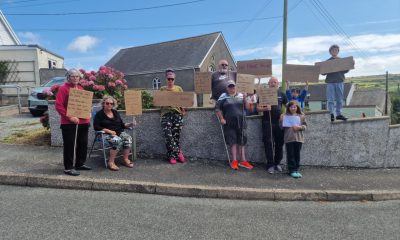
 Crime7 days ago
Crime7 days agoTrefin dog case ends in forfeiture order after protection notice breach
-

 Crime5 days ago
Crime5 days agoWoman ‘terrified in own home’ after ex breaches court order






















